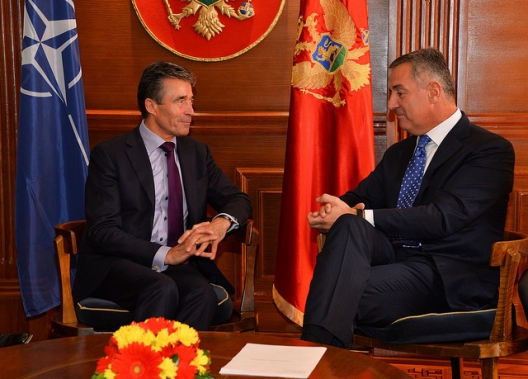 In reacting to Moscow’s aggression in Ukraine, President Obama has reassured exposed NATO members Poland, Lithuania, Latvia and Estonia of firm U.S. support , but he has shown little inclination to show needed leadership by putting another integral element of NATO policy on the agenda of September’s Cardiff summit : enlargement of the alliance. Obama’s hesitation, which has allowed NATO Secretary General Anders Fogh Rasmussen to put off the question of enlargement until next year, is unwise and unnecessary.
In reacting to Moscow’s aggression in Ukraine, President Obama has reassured exposed NATO members Poland, Lithuania, Latvia and Estonia of firm U.S. support , but he has shown little inclination to show needed leadership by putting another integral element of NATO policy on the agenda of September’s Cardiff summit : enlargement of the alliance. Obama’s hesitation, which has allowed NATO Secretary General Anders Fogh Rasmussen to put off the question of enlargement until next year, is unwise and unnecessary.
NATO enlargement, a bipartisan effort that has spanned the Clinton, Bush and Obama administrations, has been one of the most successful U.S. foreign policy achievements of the past two decades. As a result of their countries joining NATO, more than 100 million Central and Eastern Europeans in 12 nations from Estonia to Albania can freely elect their own governments and pursue national priorities without fear of foreign invasion. . . .
Nonetheless, there is reluctance in a few European capitals to proceed with further enlargement, principally out of fear of alienating Russia, which routinely rails against the alliance, usually invoking Ukraine, even though Kiev is no longer interested in membership.
Exhibit A is the case of little Montenegro, widely considered qualified to join since a successful reorganization of its intelligence services has been certified by the CIA. Its inclusion would make the entire northern shore of the Mediterranean NATO territory, from Turkey to Spain. Still, this week in Brussels, Rasmussen declared that the alliance would not assess Montenegro’s candidacy until 2015, rhetorically attempting to soften the blow by adding that “no third country has a veto over NATO enlargement.”
Macedonia was certified by the alliance as qualified for membership six years ago, but it has been vetoed by Greece because of a dispute over its constitutional name. Intent on being a de facto ally, Macedonia enthusiastically participates in NATO operations. Relative to population, its contingent was one of the largest in Afghanistan, where its troops acquitted themselves well in combat. . . .
Despite Rasmussen’s declaration, the Obama administration still has time to make Cardiff an enlargement summit by persuading remaining skeptical European allies to agree to extend membership to Montenegro and jointly to exert strong pressure on both Greece and Macedonia to compromise on the name issue.
Michael Haltzel is a senior fellow at the Center for Transatlantic Relations at Johns Hopkins University’s School of Advanced International Studies.
Image: Secretary General Anders Fogh Rasmussen and Montenegro's President Milo Djukanovic, May 22, 2014 (photo: NATO)
